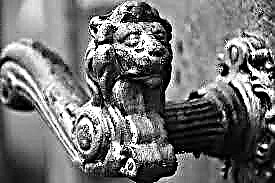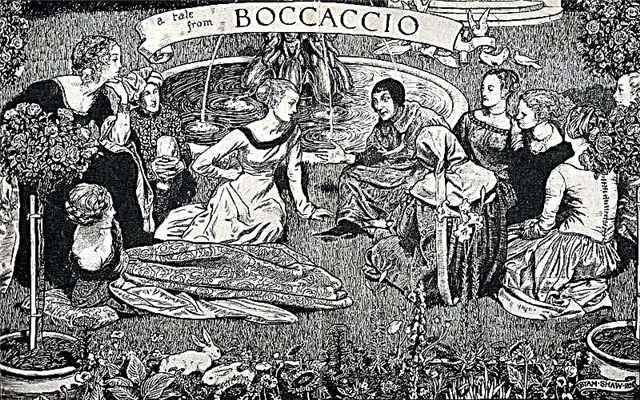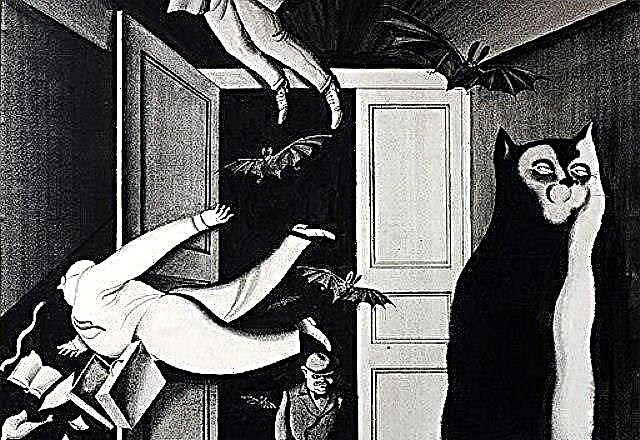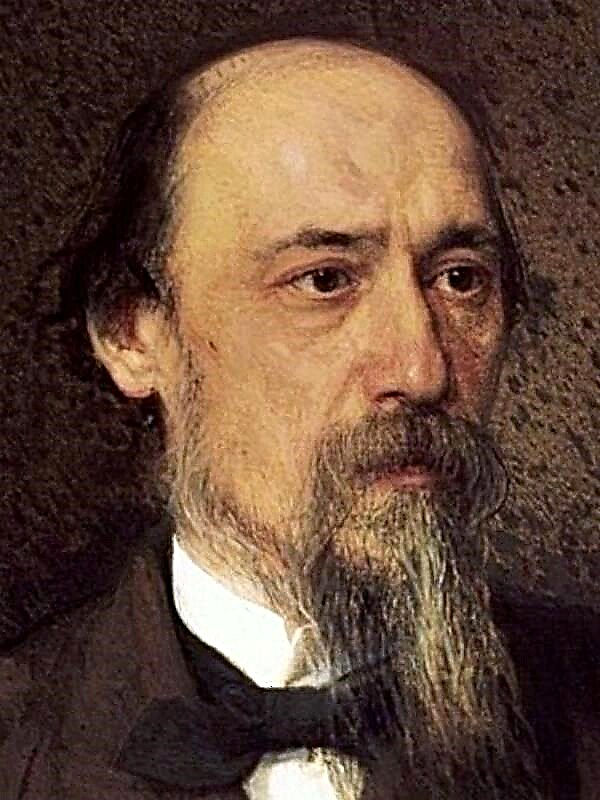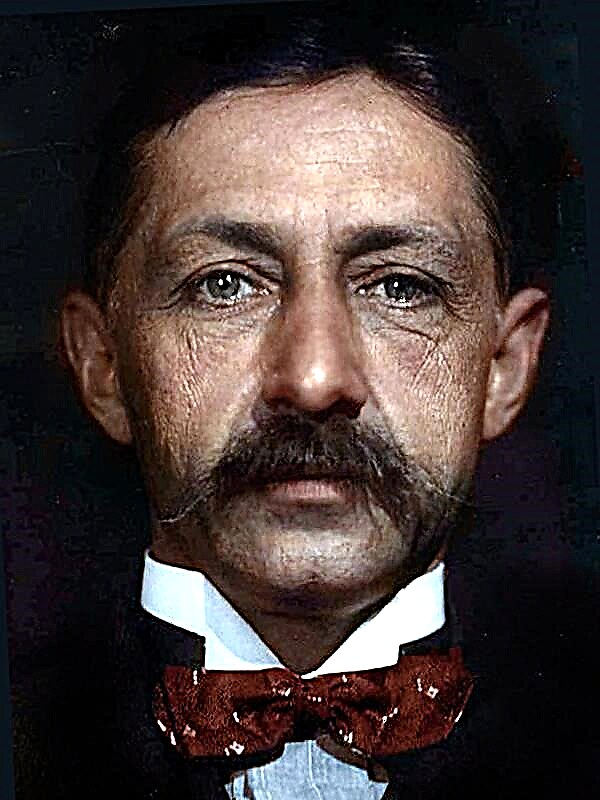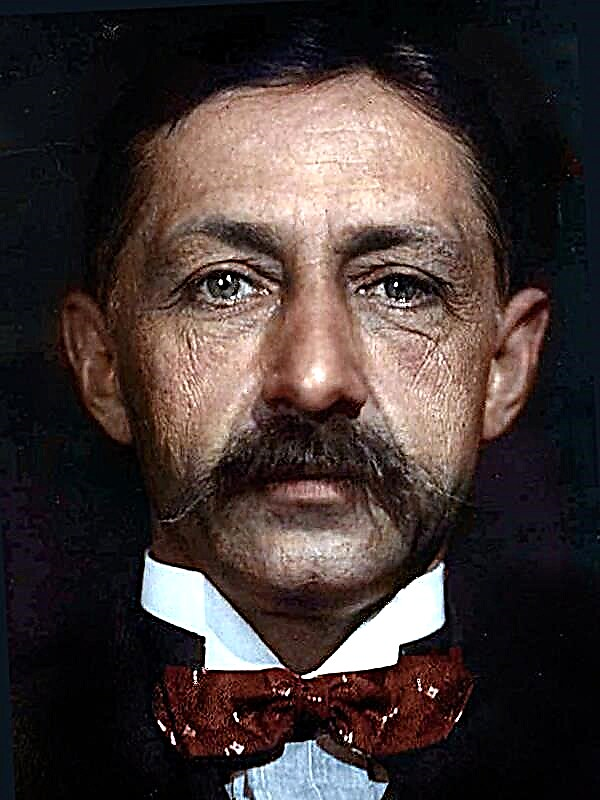The hero, describing the old house that still belonged to his great-grandfather - the village doctor, recalls: “ancient utensils surrounded us with indelible annals, and we children lived in it, as if in an old picture book, the key to which only grandfather possessed, he was the only one living biographer of the doctor, his father, ”in the chest were many treasured gizmos, the sole purpose of which was to be stored there. Having become a man, the hero returns to his native nest and finds in the attic an old leather-bound book, familiar to him from childhood. These are notes of Dr. Augustine. The hero is immersed in reading.
The first record is dated June 1739. After the beloved refused to marry him, Augustine rushed into the forest and wanted to hang himself, but the old colonel, the girl’s father, sensing something was amiss, went after him and invited Augustine to talk. Two days later, Augustine came to the colonel. The colonel told him his life. Deprived of inheritance, after the death of his father, he went around the world to seek happiness. He imagined himself a great commander, but no one wanted to take him to service. In Paris, he once happened to accidentally win a large sum at the gambling table. He was lucky in the future, and soon he became very rich. But one man called him a scoundrel, trading at the expense of crazy gold; the colonel gave all his wealth to the poor and called the offender to a duel. Shooting his shoulder, the colonel left for Germany and entered the military service. At the age of twenty-six, he inherited a considerable fortune from his uncle and was about to marry, but his best Friend betrayed him and married his bride. The colonel wanted to shoot himself, but a simple soldier from his company pushed him by the arm, and the colonel missed. With grief, he decided to squander the inheritance and for six years he skipped everything he had with friends. The war began, and then one day the old warrior prompted the young man a wonderful remedy for love hardship:
write down your thoughts and feelings and reread the notes no earlier than three years later. The colonel tried this tool and became convinced of its benefits. He rose to the rank of colonel, was wounded and retired. During one of his campaigns, his path lay through a picturesque valley, and now he decided to settle in it. He married a girl whom relatives held in a black body and she was so wild that she did not immediately feel confidence in him. But with an affectionate and respectful treatment, he gradually won her love and was very happy. They had a daughter, Margarita, but when the girl was three years old, the colonel's wife fell into the abyss during a walk and crashed to death. A few years later, the colonel and his daughter left their house, lived in different places, and then decided to settle in the valley near Pirling, where the colonel bought a plot and began to build a house. Dr. Augustine was their neighbor, they became friends, and the doctor fell in love with Margarita, but she refused him. Fearing that Augustine might lay his hands on himself, the colonel advised him to keep notes and re-read them no earlier than three years later.
Augustine came from a poor family. When he, having finished his studies, returned home, the peasant father did not dare to approach and say hello to his learned son. Augustine began to treat the sick and gave all his time and energy to it. Everyone in the district loved the doctor for kindness and disinterestedness - he not only did not charge a fee from the poor, but also tried to help with money. He built a house near his father’s hut and found a healing spring nearby. But soon Augustine's father and sisters died, he was left completely alone and took the sick teenager Gottlieb, the son of a poor peasant, to his house. Augustine bought horses to make it easier to get to the sick, and went to them in any weather. The winter turned out to be harsh, but then it suddenly sharply warmed up and everything was covered with ice crust. “Another bush gave the impression of clumping candles or light, watery gleaming corals.” Under the weight of ice, trees bent and broke, blocking the path, and Augustine had to go around the sick on foot. The wind blew, a storm broke out. Several people died, crushed by fallen trees, but soon the storm calmed down and clear spring days arrived. When the ground thawed, a colonel came to these places and began to build a house. Augustine first saw the colonel with his daughter in the church. He liked them, and soon had the opportunity to get to know each other better. They became friends and spent a lot of time together. Augustine wholeheartedly fell in love with Margarita, and the girl reciprocated. But once, the nephew Rudolf, a handsome and noble young man, came to visit the colonel, and it seemed to Augustine that Margarita was not indifferent to him. Margarita was offended and did not dissuade Augustine. She loved him, but refused to become his wife. Augustine wanted to hang himself, but, taken by the colonel by surprise, changed his mind. The last time he tried to convince Margarita, but the girl was adamant. Then the colonel sent his daughter out of the house to a distant relative, and Augustine continued to treat patients in the entire district and kept notes, from time to time meeting with the colonel and never talking to him about Margarita. The circle of his activities expanded, and his life more and more refuted the words that erupted from him at a difficult moment: “A lonely, like an anchor torn from a rope, yearning heart in my chest.” So three years have passed. Once Augustine was invited to a shooting festival in Pearling. There he met a colonel who informed him of Margarita's arrival. For three years of absence, Margarita realized that she was wrong, the doctor also realized that he was guilty, and they reconciled, to the immense joy of the colonel, who had long dreamed of seeing them as husband and wife. Augustine was already about thirty, and his heart was beating with joy, like an eighteen-year-old boy. Returning home, he opened the window and looked out: “the same silence reigned there, calm and festive splendor - from the countless silver stars swarming in the sky”.
At this, the hero stops the narrative, for he has not yet sorted out the further notes of the doctor. Augustine lived a long happy life and in his old age became like a colonel. At the end of his life, he reread his notes and made new ones, which the hero hopes to publish later.

